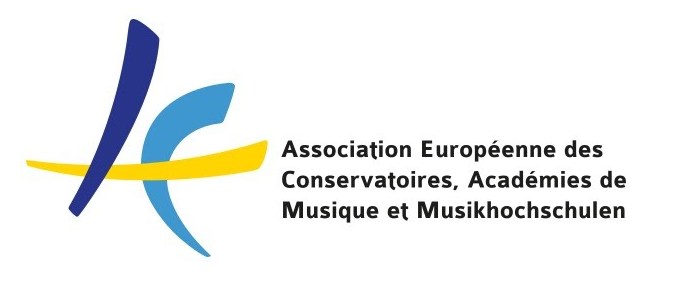GRAŻYNA BACEWICZ
* February 5, 1909 in Łódź
† January 17, 1969 in Warsaw
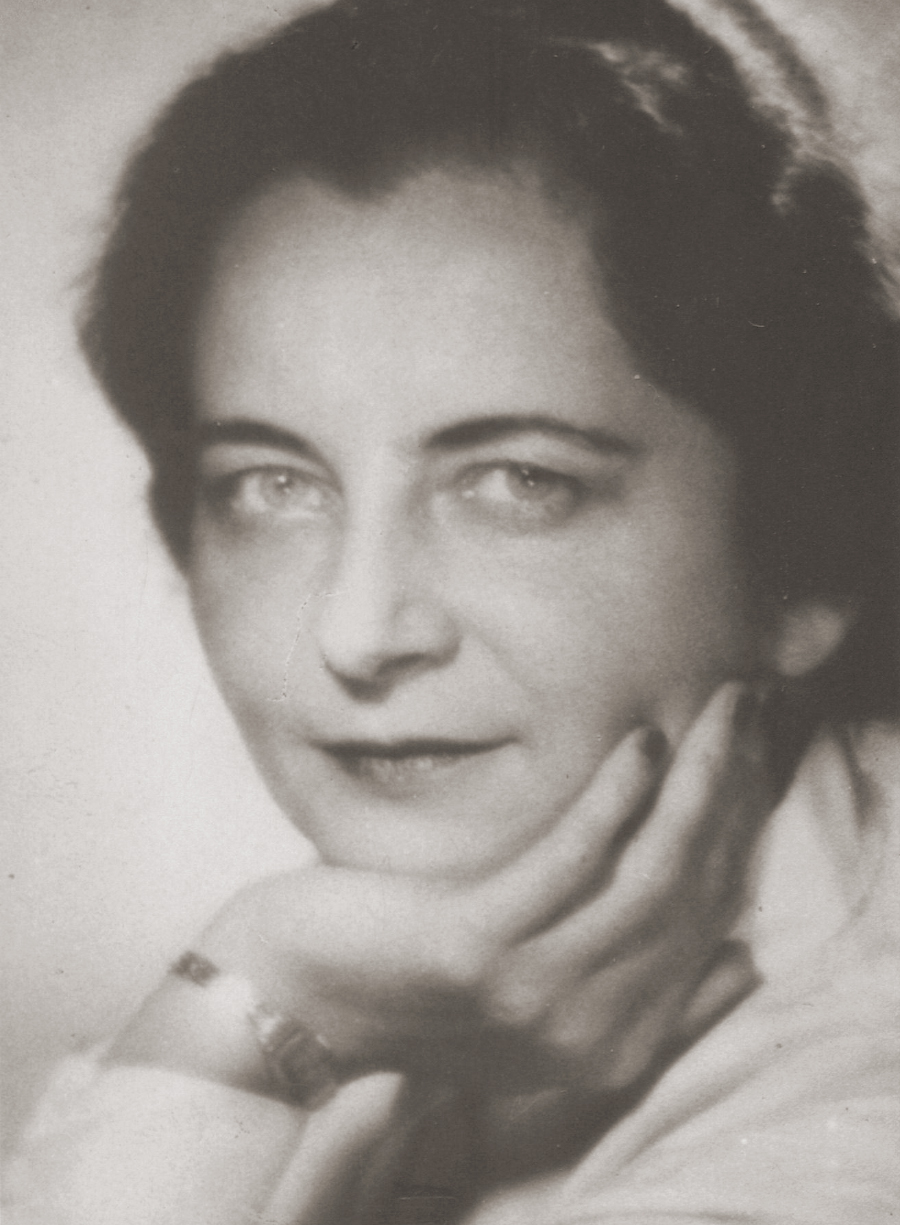 Composer and violinist. She was born on 5 February 1909 in Łódź, to a Polish-Lithuanian family. She took her first music lessons with her father Vincas Bacevičius, as did her siblings: brothers Kiejstut - pianist, composer, teacher (1904-93) and Witold - composer, pianist, music activist (1905-70) and her sister Wanda - poet and journalist (1914-2011).
Composer and violinist. She was born on 5 February 1909 in Łódź, to a Polish-Lithuanian family. She took her first music lessons with her father Vincas Bacevičius, as did her siblings: brothers Kiejstut - pianist, composer, teacher (1904-93) and Witold - composer, pianist, music activist (1905-70) and her sister Wanda - poet and journalist (1914-2011).
From 1919 Grażyna Bacewicz studied at the Helena Kijeńska-Dobkiewicz Music Conservatory in Łódź. In 1928-32 she continued her musical education at the Warsaw Conservatory of Music, studying composition under Kazimierz Sikorski, violin under Józef Jarzębski and piano under Józef Turczyński. She completed her studies at the École Normale de la Musique in Paris (1932-33) in the class of Nadia Boulanger (composition) and André Touret (violin). At the end of 1934, she returned to Paris to work under Carl Flesch (violin).
In 1934-35 and 1945-46 she led a violin class and taught theoretical subjects (harmony, counterpoint) at the Music Conservatory in Łódź. She lectured on composition at the State Higher School of Music in Warsaw (1966-69), from 1967 as a full professor.
Until the early 1950s she combined her composing activity with the career of a concertante violinist, achieving success in both of these fields. In 1935 she was awarded the first distinction at the 1st H. Wieniawski International Violin Competition. In 1936-38, she played in the Polish Radio Orchestra in Warsaw, led by Grzegorz Fitelberg. Before World War II she gave solo and chamber concerts, often with her brother Kiejstut (in France, Spain and Lithuania). During the Nazi occupation, she took part in secret concert life, and in the post-war period she made concert tours to the Soviet Union, Romania, Czechoslovakia, Belgium, France and Hungary. She also successfully performed as a pianist. She withdrew from active concert life in 1953, although in the following years she made several more premieres of her own works.
She received series of awards at composers’ competitions for her compositions. These were, among others: Competition for Women Composers in Paris (1933: 1st prize for Quintet for Wind Instruments), International Art Competition in London (1948: distinction for the Olympic Cantata for mixed choir and orchestra), F. Chopin Composers' Competition in Warsaw (1949: 2nd prize for Piano Concerto, 3rd prize for Krakowiak concerto for piano, and distinction for Etude for piano), International Contest for Composers in Liège (1951: 1st prize for String Quartet No. 4 and 1956: 2nd prize for String Quartet No. 5), UNESCO’s International Rostrum of Composers in Paris (1960: 3rd prize for "Music for Strings, Trumpets and Percussion"), Queen Elisabeth International Composing Competition in Brussels (1965: Gold Medal for String Quartet No. 7). She also received the Music Award of the City of Warsaw (1949), State Awards of the 3rd and 2nd degree (1952, 1956), the Award of the Minister of Culture and Art (1955), and the Award of the Polish Composers' Union (1960); she was awarded, among others, the Knight's Cross (1953) and the Commander's Cross of the Order of Polonia Restituta (1955).
She sat on the jury of Polish and foreign performance and composition competitions (Poznań, Paris, Moscow, Liège, Naples, Budapest). In 1955-57 and 1960-69, she served as the vice-president of the Polish Composers' Union.
She was also involved in literary work. Her play „Jerzyki albo nie jestem ptakiem” ("Swifts, or I am not a bird") (1963) received a distinction in the Ateneum competition, and a few years later was staged in the Television Theatre (1968). The composer also wrote four novels (preserved in manuscripts) and numerous short stories, many of which appeared in print in the autobiographical volume "Znak szczególny" ("Special Character"), published after her death (1970, 1974).
MAJOR WORKS:
- for orchestra: Overture (1943), 4 symphonies (1945, 1951, 1952, 1953), Concerto for string orchestra (1948), Music for Strings, Trumpets and Percussion (1958), Pensieri notturni for chamber orchestra (1961), Concerto for large symphony orchestra (1962), Musica sinfonica in tre movimenti (1965), Divertimento for string orchestra (1965), In una parte (1967);
- for solo instrument and orchestra: 7 violin concertos (1937, 1945, 1948, 1951, 1954, 1957, 1965), Concerto for piano (1949), 2 cello concertos (1951, 1963), Concerto for two pianos (1966), Concerto for viola (1968);
- chamber music: Quintet for wind instruments (1932), Trio for oboe, violin and cello (1935), Sonata for oboe and piano (1937), 7 string quartets (1938, 1943, 1947, 1951, 1955, 1960, 1965), 5 sonatas for violin and piano (1945, 1946, 1948, 1949, 1951), Trio for oboe, clarinet and bassoon (1948), Quartet for four violins (1949), 2 obereks for violin and piano (1949, 1952), 2 piano quintets (1952, 1965), Partita for violin and piano (1955), Quartet for 4 cellos (Quartetto per 4 violoncelli, 1964), Incrustations for horn and chamber ensemble (1965), Trio for oboe, harp and percussion (1965);
- for solo instruments: 2 sonatas for solo violin (1941, 1958), 2 sonatas for piano (1949, 1953), 10 etudes for piano (1957), Little triptych for piano (1965);
- for voice and instruments: songs for voice with piano (1929-56), radio opera "The Adventure of King Arthur". (1959);
- ballets: "Peasant King" (1953), "Esik in Ostend" (1964), "Desire" (1969).
KIEJSTUT BACEWICZ
* June 13, 1904 in Łódź
† August 27, 1993 in Zgierz
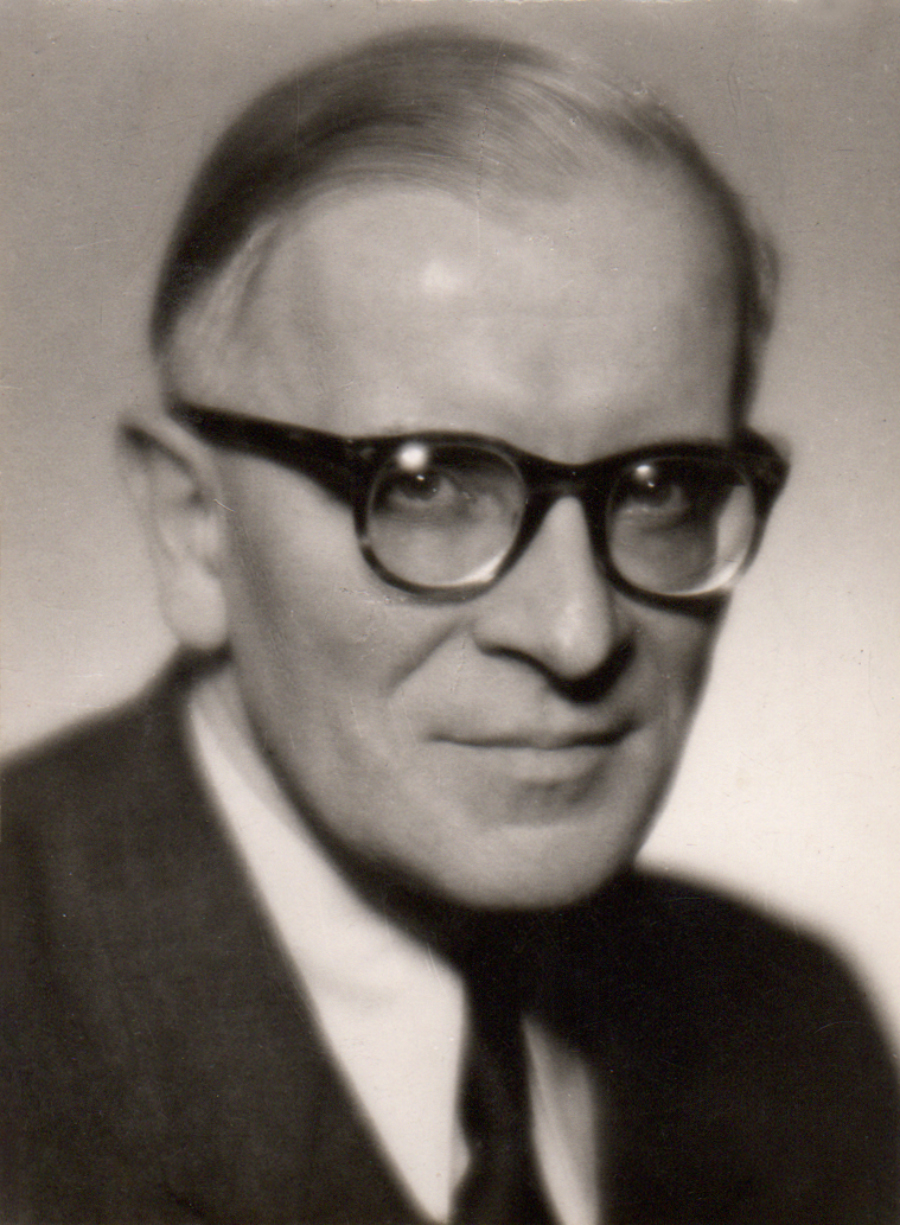 Pianist-chamber musician, teacher, composer and organizer of musical life.
Pianist-chamber musician, teacher, composer and organizer of musical life.
He studied at the Music Conservatory of Helena Kijeńska-Dobkiewiczowa in Łódź and at the State Conservatory of Music in Warsaw (piano with Antoni Dobkiewicz, composition with Roman Statkowski and Piotr Rytel) and at the University of Warsaw (philosophy studies). In the years 1931-45 he was involved in teaching, publishing and concert activities (as a chamber musician) in Kaunas and Warsaw.
After World War II he returned to Łódź, where he participated in the restitution of music education he held the position of director of the State Secondary Music School in Łódź, concurrently running classes in accompaniment, chamber music and humanities at the State Higher School of Music in Łódź (later the Academy of Music), where he worked until 1991; he also temporarily lectured at the State Higher School of Music in Warsaw. In 1950 he became the dean of the Instrumental Faculty of the State Higher School of Music in Łódź, and in 1957-69 he was its rector for four terms of office. In 1957 he contributed to the establishment of the Department of Theory of Music, Piano and Orchestral Instruments within the institution, and in 1959 he established the first Department of Chamber Music in Poland, which he headed until 1974.
Simultaneously he conducted his concert activities, performing with i.a. Eugenia Umińska, Irena Dubiska, Barbara Górzyńska, Halszka Baranowicz-Bacewicz, Olga Olgina, Lidia Skowron, Teresa Żylis-Gara, Mieczysław Szaleski, Zenon Płoszaj, Zbigniew Frieman, Andrzej Hiolski, as well as with his own sister Grażyna, with whom he made a number of world premieres and first recordings of her chamber works.
He composed songs and piano pieces (incl. Toccata). He published a number of research papers on the issues of piano chamber music.
Awarded, i.a. with the Knight’s Cross and Commander’s Cross of the Order of Polonia Restituta, the Medal of the National Education Commission and the honorary title of the Teacher of Merit of the People’s Republic of Poland. In 1993 he received an honorary doctorate from the Academy of Music in Łódź.
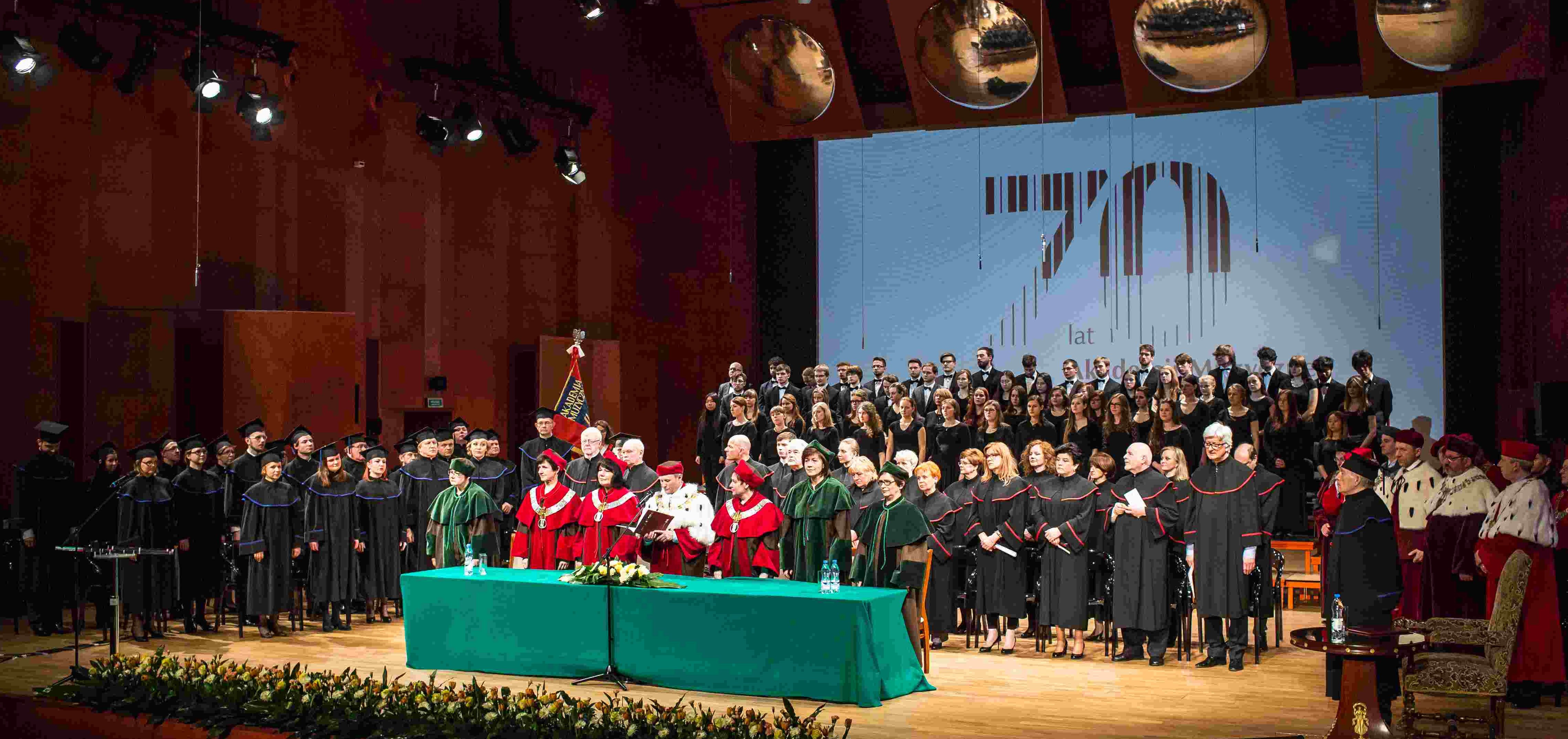
The history of the Grazyna and Kiejstut Bacewicz University of Music in Lodz goes back to the early years of the 20th century. At this time Helena Kijeńska-Dobkiewiczowa founded a Music Conservatory, where she gathered a team of outstanding musicians and teachers. After WW II, the school was reactivated, first as State Music Conservatory which was given on March 1, 1945 – according to a document of July 30, 1945 - a palace of Łódź factory owner, Izrael Kalmanowicz Poznański, situated at 32 Gdańska St. From April 1, 1946 – by the Decision of the Ministry of Culture and Art of Feb 1, 1946 (Journal of Regulations of Min. of Culture and Art No 2 of Jul 8, 1946) – the State Music Conservatory became the State Higher School of Music. From December 1, 1981 the School changed its name to University of Music (Journal of Laws No 31 of Dec 12, 1981), and on July 2, 1999 it adopted the name of Grażyna and Kiejstut Bacewicz (Journal of Laws No. 62 section 683 of December 29, 1981). Under the decision of December 1, 1992, the University was given the second building at 79 Kilińskiego Street, where the Main Library, together with the Record and Tape Library and reading room, has been situated since Oct 1, 1993. Some classes, for students of art education, music therapy, eurhythmics and others, take place there as well.
The first rector of State Music Conservatory, and later of State Higher School of Music was Prof. Kazimierz Wiłkomirski (1945-1947), and Prof. Helena Kijeńska-Dobkiewiczowa was a Vice-rector.
The following professors were rectors of the University:
- Kazimierz Sikorski (1947-1954),
- Mieczysław Drobner (1954-1957),
- Kiejstut Bacewicz (1957-1969),
- Zenon Płoszaj (1969-1981),
- Zygmunt Gzella (1981-1987),
- Aleksander Kowalczyk (1987-1993),
- Bogdan Dowlasz (1993-1999),
- Anna Wesołowska-Firlej (1999-2005)
- Antoni Wierzbiński (2005-2012)
- Cezary Sanecki (2012-2020).
Prof. Elżbieta Aleksandrowicz has been a Rector of the University since 2020. The Vice Rectors are: Prof. Agata Jarecka (for scholarly and didactic affairs) and Prof. Urszula Kryger (for student and artistic affairs). Agnieszka Grochulska, M.A. is a Chancellor of the University.
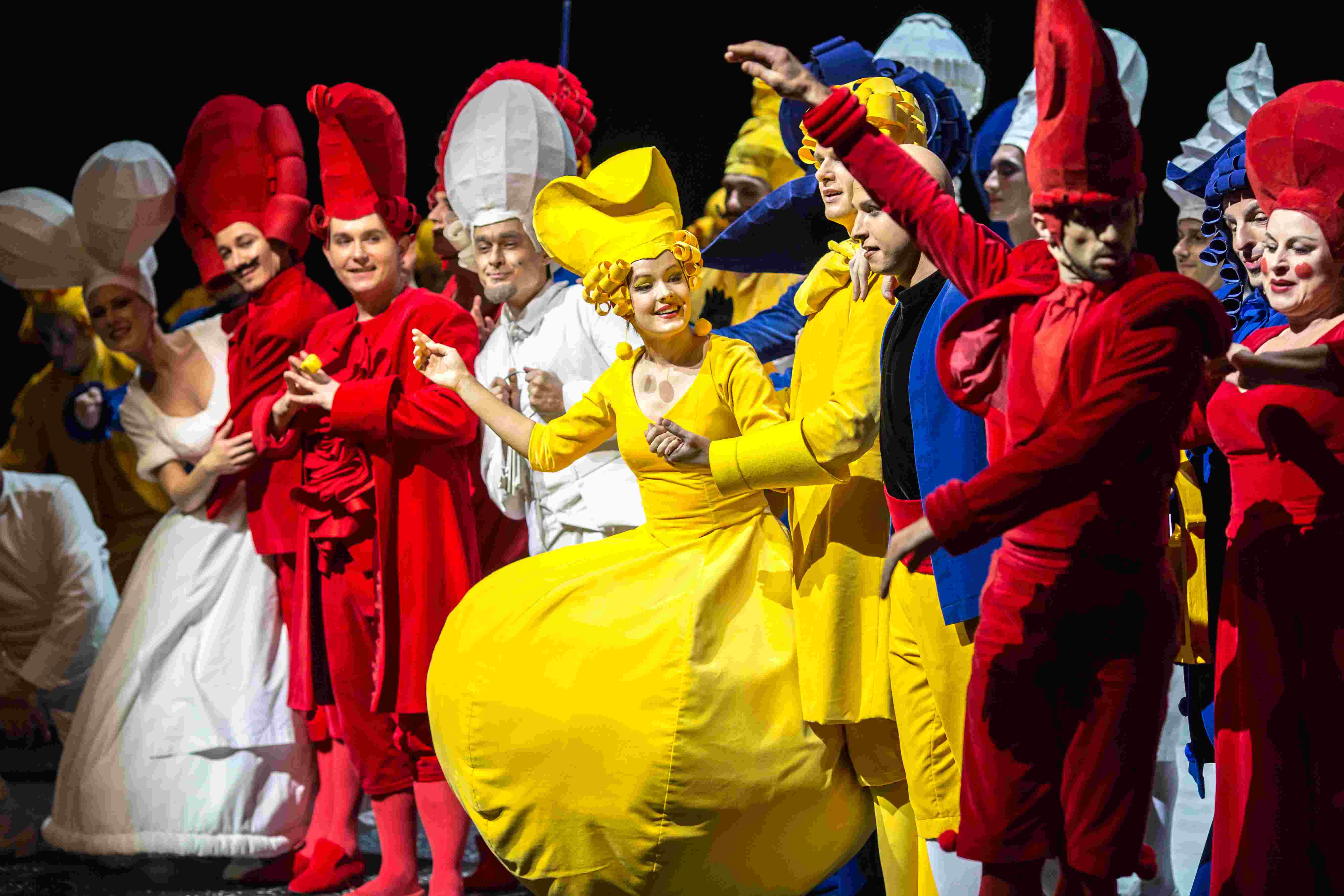
The previous and current Senates of University of Music awarded the title of honorary doctor of musical arts to the following outstanding artists – significant figures if musical life of both Łódź and the University: Aleksander Tansman (1986), Prof. Kiejstut Bacewicz (1993), Prof. Zenon Płoszaj (1996), Prof. Franciszek Wesołowski (1999), Prof. Teresa Kubiak (2005), Prof. Wanda Wiłkomirska (2006), Jerzy Semkow (2013), Prof. Zygmunt Krauze (2015), Prof. Stanisław Firlej (2015), Prof. Teresa Żylis-Gara (2016), Irena Santor (2017), Jan Krenz (2018), Prof. Kevin Kenner (2018).
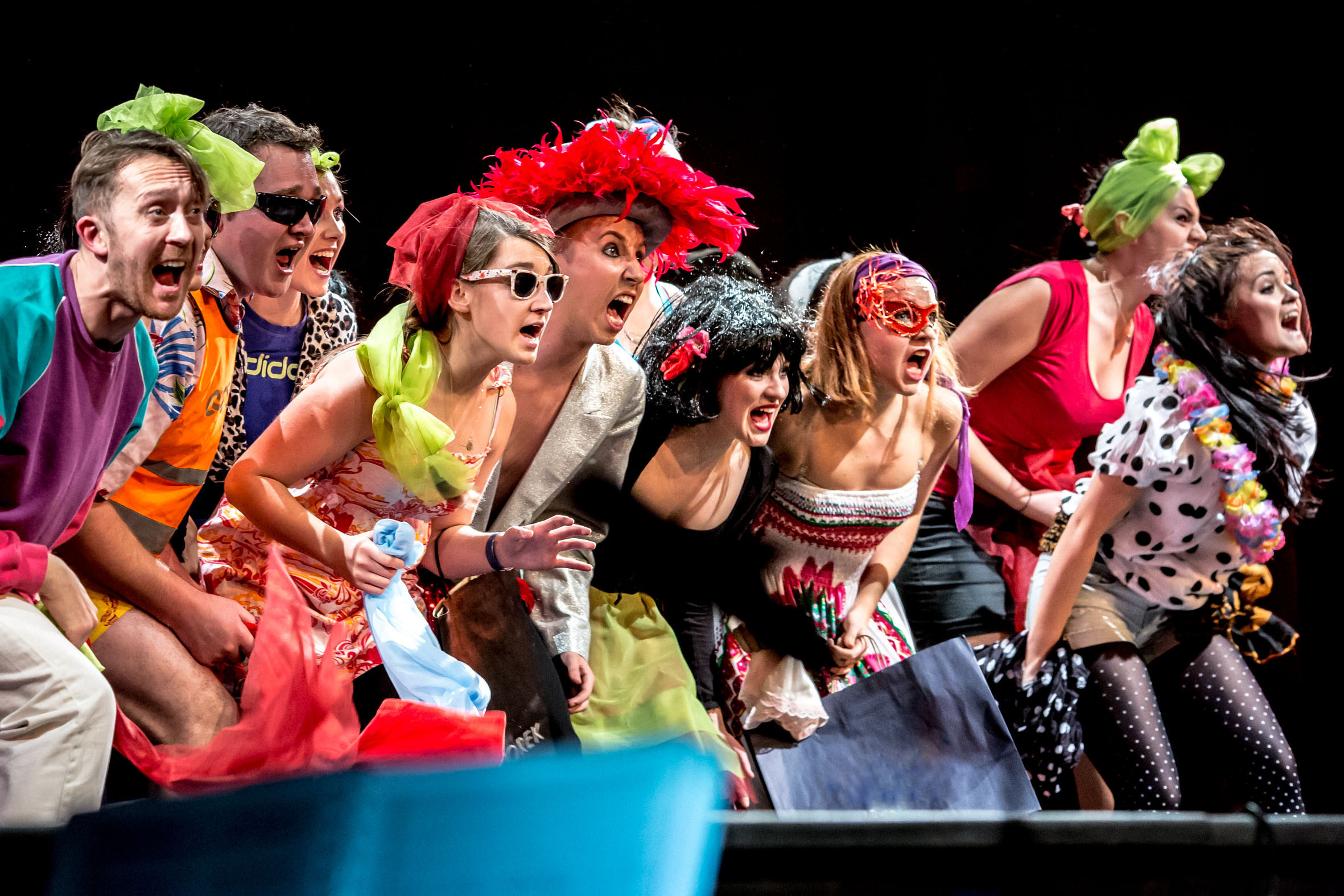
Opening hours
Library (rooms 201 & 202):
Monday, Wednesday, Friday - 9.00-14.30
Tuesday, Thursday - 9.00-17.30
Recordings Library (room 104):
Monday, Thursday - 11.30-17.30
Tuesday, Wednesday, Friday - 10.30-14.30 Collection of the Library includes paper books (over 10.000 items), music scores (over 35.000 items), Bachelor and Master dissertations, Polish and foreign music magazines. Since 1993 the Library uses a computer system HORIZON. In order to operate this system, readers use 3 computers located in the circulating library and 3 computers located in the reading room. The Recordings Library is a part of the Main Library and has at its disposal a unique collection of 2000 CDs and over 3000 vinyl records.
The LP collection of classical music is particularly valuable and commonly used due to its uniqueness – a big part of historical recordings has never been published on CDs. In order to convert these analogue-vinyl recordings to digital media, our institution has recently purchased a special Laser Turntable ELP 330. The Academy is the only centre in Poland and our part of Europe to have such a device. It is used for planned digitalization of analogue recordings, which are exposed to a high quality digital compression in order to enter, in a form of audio files, an On-line Bank of Classics. In connection with an intensive development of Internet and needs of students and tutors in the scope of fast access to necessary information, this pioneering project aims at alteration of a whole CD collection into audio files available on-line. It will enhance the quality and comfort of the educational process, facilitate mastering performance skills and help in promotion of music.

International Relations Office
tel. + 48 42 662 16 15
This email address is being protected from spambots. You need JavaScript enabled to view it.
Artistic groups operating at the Grazyna and Kiejstut Bacewicz University of Music in Lodz:
- Symphony Orchestra
- Baroque Orchestra
- PRIMUZ Chamber Orchestra
- Wind Orchestra
- Flute Orchestra
- Jazz Orchestra
- Big Band
- Choir
- Chamber Choir
- Gospel Choir
- The Bacewicz Percussion Ensemble

I. COMPETITION
- The competition is open to composers of all nations regardless of age.
- Each participant may submit more than one score.
- All submitted works must have been composed after December 31st, 2012, be unpublished, have never been performed in public and have not been awarded a prize in any other competition.
- The jury will give its award to three works, which will be performed in The Arthur Rubinstein Łódź Philharmonic.
- The subject of the competition is a work for:
a) instrument solo and string orchestra with the option of using percussion instruments (up to four players),
b) or voice solo and string orchestra with the option of using percussion instruments (up to four players). - In case of a work for voice solo, the text may be written in any language. A translation into English must accompany the composition.
- The string orchestra consists of:
8-14 Violins I, 6-12 Violins II, 6-10 Violas, 4-8 Violoncellos, 2-6 Double Basses. - List of percussion instruments:
Xylophone, Marimba [4.5-octave], Vibraphone, Chimes (Tubular Bells), Timpani, Wood Wind Chimes (Bamboo Wind Chimes), Temple Blocks, Castanets, Guiro, Cabaza, Ratchet, Slapstick, Triangle, Cowbells, Sleigh Bells, Flexatone, Anvil, Thunder Sheet, Pair of Cymbals, Suspended Cymbals, Tam-Tams, Tambourine, Timbales, Bongos, Snare Drum, Tom-Toms, Bass Drum. - The use of recordings and live electronic means is not permitted.
- Duration of the composition must be 10-20 minutes (this should be specified in the score).
- Three prizes:
- 1st Prize: 26.000 PLN (approx. 6.000 €*)
- 2nd Prize: 17.000 PLN (approx. 4.000 €*)
- 3rd Prize: 9.000 PLN (approx. 2.000 €*)
* The euro equivalent of prizes has been given according to the exchange rate of the National Bank of Poland on the day of the competition announcement.
All prizes are given in their gross amounts. - The first performance of the awarded compositions will be on November 27th, 2015 in The Arthur Rubinstein Łódź Philharmonic.
- The jury reserves the right to divide the prizes as it sees fit.
- The members of the jury:
Zygmunt Krauze (Poland) - Chairman
Mauricio Sotelo (Spain)
Steven Stucky (USA)
Berislav Šipuš (Croatia) - Results of the competition will be announced in the first half of September 2015.
- The score should be submitted anonymously, bearing a letter or digit code.
- The score should be sent along with proof of payment of the registration fee and a sealed envelope, bearing the same code as the score. It must include the following information:
a) first name and surname of the composer,
b) date and place of birth,
c) nationality,
d) address, telephone number, e-mail
e) a declaration that the submitted work has been composed after December 31st 2012, is unpublished, has never been performed in public and has not been awarded a prize in any other competition. - Scores should be sent to the following address:
5th Grażyna Bacewicz International Composer Competition
The Grażyna and Kiejstut Bacewicz Academy of Music in Łodź
32 Gdańska St., 90-716 Łodź, Poland - The deadline for sending scores is August 31st, 2015 (the postmark is decisive).
- 1. The registration fee for each score is 45 €.
- The amount is to be paid to the bank account of
The Grażyna and Kiejstut Bacewicz Academy of Music in Łodź
32 Gdańska St., 90-716 Łodź, Poland
BANK PEKAO SA
45 1240 3028 1978 0010 1782 4704
SWIFT/BIC: PKOPPLPW
with a note:
5th G. Bacewicz International Composer Competition
and the composer’s name and surname. - All banking charges and commissions must be covered by the applicant. Please, make sure that the amount that will reach the account will be precisely the same as required (see article VI.1).
- Cheques will not be accepted.
- The registration fee will not be refunded.
- Entering the competition means that each participant agrees to the above rules.
- Scores not fulfilling requirements defined by the rules will not be accepted to the competition.
- Scores are not to be returned to the composers.
- Winners of the competition are obliged to prepare parts and send them at their expense in due time, determined by the competition organizers.
- In the case of non-standard instruments in a solo part, the composer of an awarded piece is obliged to recommend a soloist. The organizers will cover costs of the soloist’s travel within Europe.
The Jury reserves the right not to award any monetary prizes or to modify their amount.
contact – This email address is being protected from spambots. You need JavaScript enabled to view it.
Sławomir Kaczorowski – Director of the Competition
Dorota Rossowska – Secretary of the Competition
Contact
- International Relations Office:
Ms Dorota Rossowska
Phone +48 42 662 16 15
E-mail: This email address is being protected from spambots. You need JavaScript enabled to view it.
The University of Music in Łodz puts its emphasis on internalization of education and improving its quality. Therefore an important point of the institutional strategy is to extend its international relations. Our Academy is an active participant in Erasmus+ (PL ŁÓDŹ04), exchanging its students and teaching staff with nearly 80 institutions from Europe (including Germany, Italy, Austria, Belgium and other countries).
For many years the University of Music in Lodz has been a member of AEC (European Association of Conservatories and Academies of Music) with its seat in Brussels.
In spring 2010 we were positively evaluated by the AEC team of experts who reviewed our programme offer and study conditions.
The AEC team was headed by Dame Janet Ritterman (Royal College of Music in London). Other experts were Robert Fitzpatrick (former Dean of Curtis Institute of Music Philadelphia), Valentina Sandu-Dediu (Universitate Naţională de Muzică din Bucureşti ) and a secretary - Ester Tomasi-Fumics ( Universität für Musik und darstellende Kunst Wien).
- PARTNER INSTITUTIONS click
There are three entrances to the building: one representative with a drive way from 1 Maja Street, second entrance from Gdańska Street and the third one from the courtyard. The most characteristic element of the palace is a semicircular projection with a flattened dome.
The building became Academy's residence place on the first weeks of 1945. As Kazimierz Wiłkomirski, the first rector of the Academy, wrote in his Memories, the city authorities intended to place Workman Cultural Centre in the building. The decision was changed thanks to insistence of the then vice-rector Prof. Helena Kijeńska-Dobkiewiczowa. In the first years Academy shared the building with Secondary Music School and Lodz Film School.
At present, concert halls, lecture halls and practice rooms for students, Electronic Music Computer Studio and Electroacoustic Workshop are located in the palace. It is also a place of location of administration, Academy's authorities, Bacewiczówka bar and a copy-room. In the hall on the ground floor there are computer sites with free internet access.
The Grażyna and Kiejstut Bacewicz Academy of Music in Łódź is an important entity of academic and artistic world in Łódź and the whole region. It is a credible and experienced institution, famous for its substantial level of education and openness to all forms of development and promotion of classical, popular or film music.
The outcome of educational activities of the Academy are numerous awards and honours for the professors, students and graduates at national and international competitions, whereas the outcome of its artistic and scientific sessions, organized by the chairs of the Academy, are published materials, such as research publications and CDs. The Academy of Music in Łódź is a state art academy offering comprehensive full-time and part-time studies in a variety of music areas. Study programmes are based on the European Credit Transfer System (ECTS).
Full-time studies
1st cycle 3-year studies, 2nd cycle 2-year studies
FACULTY I
Composition, Theory of Music, Conducting, Eurhythmics and Art Education
specialties: composition, theory of music, eurhythmics, art education in music arts
FACULTY II
Piano, Organ, Harpsichord and Early Instruments
specialties: piano, harpsichord, organ and early instruments: baroque violin, baroque cello, viola da gamba, lute, traverse flute, recorders, baroque oboe, natural trumpet
FACULTY III
Instrumental Studies
specialties: violin, viola, cello, double bass, guitar, harp, flute, oboe, clarinet, bassoon, saxophone, horn, trumpet, trombone, tuba, percussion, accordion
FACULTY IV
Vocal and Acting Performance
specialties: vocal and acting performance
Part-time studies
- Choreography and Dance Techniques (1st cycle studies)
- Music Therapy (1st cycle studies)
- Instrumental Studies (1st, 2nd, 3rd cycle studies)
- Vocal Studies (1st, 2nd, 3rd cycle studies)
- Post-Diploma Non-Degree Professional Master Course in Instrumental or Vocal Studies
- Post-Diploma Non-Degree Studies in the Field of Film Music, Computer Music and Audiovisual Work.
All courses are taught in Polish language. Some individual classes could be run in foreign languages, however group classes, which are compulsory, are taught in Polish. If you come to complete the whole cycle of studies it is strongly recommended to start the stay in Poland as a preparatory (zero) year with an intensive learning of Polish (one year before starting the studies).
The Academy offers the highest quality education due to: high rank specialists who teach master classes of instruments, composition, and eurhythmics, choreography and music therapy, experienced teachers who deliver lectures and offer classes on the theory of music. The programme of studies is often enriched with extra master courses, seminars, workshops, or lectures (many of them run by visiting professors from renowned institutions from all over the world).












